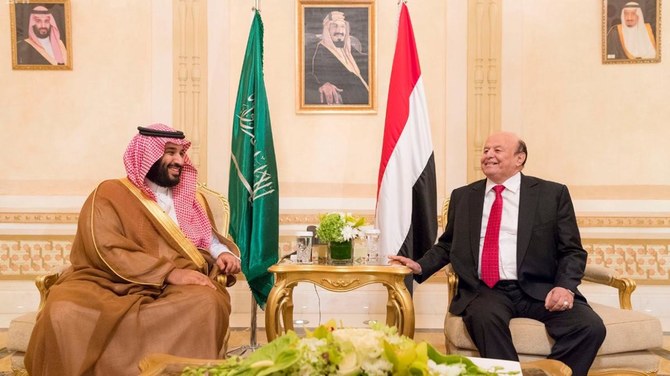Yemen’s political parties must engage in consultations in Riyadh to achieve peace, a top GCC official said as talks kicked off in Saudi Arabia.
Consultations between Yemen’s different factions, aimed to pave the way for peace and revive UN-led talks, are being held with support from the GCC without representatives of the Houthi rebels.
“I call on all Yemeni parties to engage in consultations to achieve peace. We welcome the GCC’s initiative to host Yemeni consultations, which represent a historic opportunity,” said the GCC Secretary General, Nayef Al Hajraf.
“The situation in Yemen is a source of deep concern and Yemenis have the right to aspire to a better future,” Mr Al Hajraf said as talks began.
The success of these consultations is not an option, said the top GCC official, but is rather a reality to be achieved.
US envoy to Yemen Tim Lenderking called on Yemen’s warring sides to come together to end the eight-year war.
“Yemenis are living in difficult conditions and the international community must reduce their suffering. I call on donor states to help civilians,” he said.
Both sides urged to halt fighting
The UN on Wednesday welcomed moves by Yemen’s warring sides to temporarily halt military operations and urged them to engage “without preconditions” with UN-led peace efforts, the spokesman for the UN secretary-general said.
“We encourage all parties to build on these positive developments, which coincide with the arrival of Ramadan,” the spokesman said.
READ ALSO: US: Biden’s double standard on refugees
“We further hope that this creates momentum to end all violence, advance Yemen’s political process and alleviate the suffering of the Yemeni people, including by easing restrictions on movement of individuals and essential commodities, including fuel,” the spokesman said.
The Saudi-led coalition fighting Yemen’s Houthi group had said it would halt military operations as of Wednesday after the Iran-backed movement this week declared a three-day cessation of cross-border attacks and ground offensives in Yemen.
The unilateral initiatives came after a UN call for a truce during Ramadan and as Saudi Arabia hosts allied Yemeni factions in Riyadh on Wednesday for week-long consultations.
According to a report, The Coalition to Restore Legitimacy in Yemen announced on Tuesday that it will stop all military activities in Yemen starting Wednesday March 30 at 6 a.m.
This comes in response to the request of the Gulf Cooperation Council Secretary General and in support of the efforts and endeavors to reach a comprehensive and sustainable political solution to end the Yemeni crisis, the coalition said in a statement.
The coalition also said it will take all steps and measures to make the ceasefire a success, and create appropriate conditions and a positive environment during the month of Ramadan to make peace.
“Our position is firm in support of the legitimate Yemeni government in all its political stance and military measures, and we affirm our stand with the Yemeni people to achieve their aspirations and build their state in a way that achieves security and prosperity,” the coalition further said.
GCC Secretary General Dr. Nayef Falah Al-Hajraf on Tuesday called on the coalition and all Yemeni parties to halt all military operations in Yemen.
The GCC said in a statement that Al-Hajraf’s call emanated from the keenness of GCC leaders and peoples to achieve peace and stability in Yemen. It also came to emphasize the great interest that Yemen and its people enjoy within the GCC.
The Secretary General affirmed that the call is addressed to all Yemeni parties, and renewed the invitation to Ansar Allah to attend and participate in the dialogue with their “Yemeni brothers”, and to prioritize Yemen’s interest and alleviate the suffering of the Yemeni people.
On Friday, the Iran-backed militia attacked an Aramco oil storage facility in Jeddah causing a fire.
The coalition announced later that the fire in two tanks at the North Jeddah oil facility had been brought under control, and there were no casualties.
Saudi Arabia said after those attacks that it would bear no responsibility for any shortage of global oil supplies caused by Houthi attacks.
The North Jeddah plant stores diesel, gasoline and jet fuel for use in the city. It accounts for over a quarter of Saudi Arabia’s supplies and also provides fuel for a desalination plant.
Last week and prior to Friday’s attack, Saudi air defenses forces destroyed seven drones and a missile launched by the Houthis targeting the southern part of the Kingdom. The attacks deliberately targeted civilian areas and energy installations, the coalition said, and threatened both regional and international security.
These attacks were condemned by countries and organizations from around the world.













